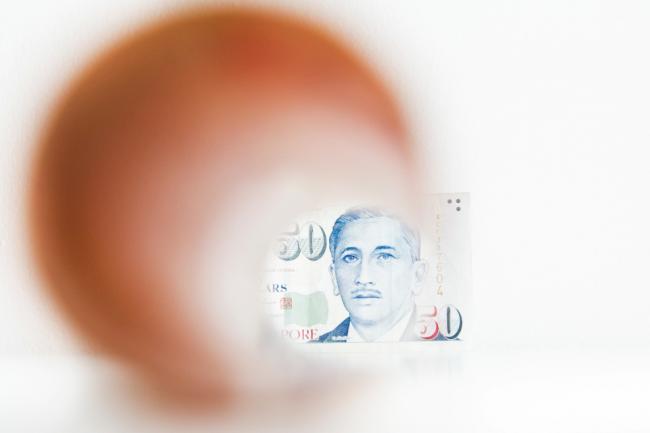(Bloomberg) -- The U.S. Treasury added Singapore, Malaysia and Vietnam to a watch list for currency manipulation, putting their foreign-exchange policies under scrutiny.
Singapore made the list because of its large current account surplus and net foreign currency purchases of at least $17 billion in 2018, equivalent to 4.6% of GDP, according to the Treasury.
Malaysia was cited for its bilateral trade surplus with the U.S. of $27 billion last year and its currency intervention, while Vietnam was highlighted for its large current account and bilateral trade surpluses.
Being labeled a currency manipulator doesn’t come with immediate penalties but can rattle financial markets.
Singapore should undertake reforms that will lower its high saving rate and boost low domestic consumption, while striving to ensure that its real exchange rate is in line with economic fundamentals, to help narrow its large and persistent external surpluses, the Treasury said in its report. It also welcomed Singapore’s pledge to report more intervention data, while acknowledging that currency adjustments are its main monetary policy tool.
“Singapore’s monetary policy adjustments are primarily made through its currency, hence, intervention activities are relatively heavier,” said Christy Tan, head of markets strategy at National Australia Bank. “I doubt it will have a meaningful impact,” she said, noting that Singapore is “still very export-oriented” in light of the U.S. advice to boost domestic consumption.
Malaysia’s central bank said the country supported free and fair trade and didn’t have unfair currency practices, adding that inclusion on the list had no consequences for the country’s economy.
"The ringgit exchange rate is market-determined and is not relied upon for exports competitiveness," Bank Negara Malaysia said in a statement.
Countries with a current-account surplus with the U.S. equivalent to 2% of gross-domestic product are now eligible for the list, down from 3%. Other thresholds include persistent intervention in markets for a nation’s currency, and a trade surplus of at least $20 billion. Countries that meet two of the three criteria are placed on the watch list. China only met one of the criteria, but the Treasury said it’s on the list because of its large trade surplus with the U.S.
The other two Asian countries on the list are Japan and South Korea. India was removed from the watch group, given that it’s met only one of the three criteria -- a “significant” bilateral surplus with the U.S. -- for two straight reports.
Vietnam was at risk of meeting all three of the Treasury’s new criteria for the currency manipulator tag. The Treasury excused Vietnam’s recent currency intervention, citing movements in both directions and net foreign exchange purposes that had “reasonable rationale” to rebuild reserves.
Kim Hwan, an economist at NH Investment & Securities in Seoul, said U.S.-China trade tensions may have played a role in the Treasury’s move. The fact that Singapore, Vietnam and Malaysia are added to the list “indicates the U.S. is continuing to pressure China,” said Kim. “These countries are all Southeast Asian countries that have close economic correlations with China.”
Japan was urged to enact structural reforms that would ease the public debt burden and trade imbalances, and South Korea was called on to limit currency interventions even as it was applauded for fresh disclosures on those actions. Malaysia was cited for improvement on its external rebalancing.
(Updates with details on Malaysia and Vietnam.)
